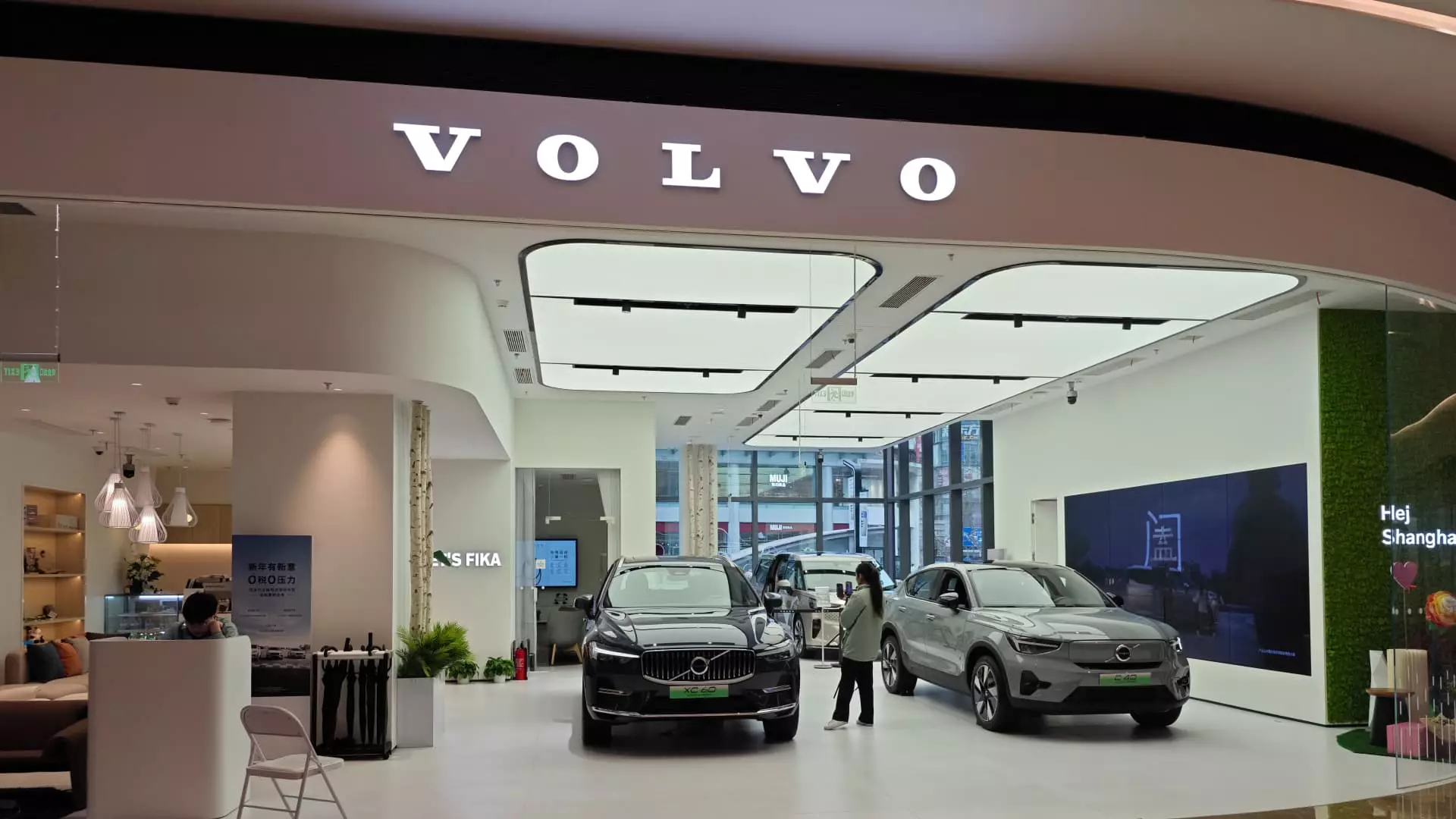Volvo Cars recently announced a revision to its margin and revenue targets, signaling a shift in its corporate strategy. The Swedish automaker, a majority-owned subsidiary of China’s Geely Holding, has adjusted its EBIT margin goal for 2026 to 7-8%, down from the previous target of “above 8%.” This decision was influenced by the increased complexity of global trade dynamics, particularly related to trade disputes and tariffs.
The automotive industry is currently facing a turbulent period characterized by geopolitical uncertainties, especially within the European Union, China, and the United States. One of the key challenges for automakers like Volvo Cars is the transition to electric vehicles (EVs) amidst shifting market dynamics and regulatory landscapes. The company’s decision to scale back its all-electric vehicle sales target from 100% to a range of 90-100% by 2030 reflects a strategic adjustment to the evolving market conditions.
Volvo Cars cited several factors for its revised targets, including consumer demand, the slow rollout of charging infrastructure, government incentives withdrawal in some markets, and uncertainty surrounding tariffs on EVs. These challenges have highlighted the need for automotive companies to be agile and adaptable in their approach to sustainable mobility solutions. By acknowledging the market realities and adjusting its goals accordingly, Volvo Cars aims to maintain its competitive edge in the premium car market.
In addition to the strategic realignment of its business targets, Volvo Cars announced an extended partnership with U.S. chip giant Nvidia to develop advanced features for driving assistance and autonomous driving. The company also plans to streamline its EV manufacturing process by transitioning to a “single technology stack,” with the goal of reducing costs and enhancing efficiency in production.
Despite the challenges posed by the current market environment, Volvo Cars reported a 3% year-on-year increase in global sales in August, driven by strong growth in Europe. However, sales in China experienced a notable decline of 23%, signaling regional market variations. Notably, fully-electric and plug-in hybrid vehicles accounted for almost half of the total vehicle sales in August 2024, reflecting the increasing consumer interest in sustainable mobility options.
Looking ahead, Volvo Cars remains committed to its long-term goal of achieving fully electric sales when the market conditions are conducive. The company’s emphasis on innovation, strategic partnerships, and adapting to market realities underscores its resilience and determination to lead the transition towards electrification in the automotive industry.
Volvo Cars’ decision to recalibrate its margin and revenue targets in response to industry challenges demonstrates its strategic agility and commitment to sustainable growth. By aligning its business objectives with evolving market dynamics and technological advancements, the company aims to position itself for long-term success in a rapidly changing automotive landscape.

